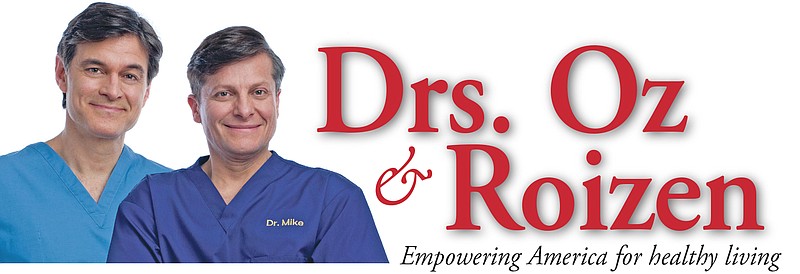Medicine is a science and an art - and both can be messy at times. That's why it's important to have multiple high-quality studies on humans (not just in the lab). Long-term outcome studies are needed to back up recommendations for taking supplements and medications. You don't want to be surprised by repercussions/side effects that researchers didn't see coming.
Unfortunately, that potential for unwelcome surprises was brought into sharp focus recently with the publication of a study in the journal Aging Cell that examined how the first-line medication for Type 2 diabetes, metformin, affects exercise. The study found that "metformin negatively impacts the hypertrophic response to resistance training in healthy older individuals." What that means is that the medication interferes with muscle building.
Those results were the opposite of what the researchers expected! Since metformin reduces glucose levels and subsequent inflammation, they figured that people taking it would have an enhanced benefit from doing progressive resistance exercise training. Nope. In a 14-week, double-blind study of those 65 and older, the folks on placebo gained more muscle mass than those taking metformin. That's nuts! Exercise - and a resulting increase in muscle mass - is one of the most important ways to control glucose levels and dodge a roster of diabetes-related complications from depression to heart disease.
This new information is an example of why we put so much emphasis on outcome studies - that is, studies that let you see, down the road, what the long-term effects of a medication or supplement may be. And it is why we stress getting a second opinion before taking any medication for more than four days and using lifestyle approaches to prevent, control and even reverse diabetes.
One example of the use of rigorous outcome studies to verify our recommendations is Dr. Mike's Fab 8+3+1+1+1 (details below). That means you can be confident that the supplements or medications we list will genuinely help you achieve a younger RealAge with no hidden risks. When more studies are needed, we tell you.
So, what should you do if you're taking metformin? Ask your doc about alternative meds to manage Type 2 diabetes, and rely on lifestyle changes to effectively avoid or reverse health risks. Here are Dr. Mike's suggested Fab 8+3+1+1+1 to get you started.
The Fab 8 Daily: High-quality human studies show these are beneficial. Get your doc's approval first.
Half a multivitamin with close to the recommended daily allowances twice a day.
Vitamin D2 or D3 to achieve a blood level of 30-80 nanograms/milliliter.
600 mg calcium citrate with 300 mg magnesium.
900 mg of DHA omega-3.
two 81 mg aspirin. One in the morning; one at night. Both with a glass of warm water.
atorvastatin or rosuvastatin.
200 mg CoQ10.
lactobacillus or spore form probiotic.
Plus 3 Daily: These are low risk, but we don't have enough human data to be positive about their effectiveness.
420 mg of purified omega-7.
1,500 mg NAD+.
300 mg of avocado-soybean unsaponifiables.
Plus 1+1+1: These three steps have been shown to benefit you enormously, with no risks.
Ditch saturated and trans fats, added sugars and syrups, any grain that isn't 100% whole and embrace a Mediterranean-style diet. Large population studies and randomized clinical trials have shown that this can reduce your risk of heart disease, metabolic syndrome, diabetes, certain cancers, depression and premature aging.
Practice daily meditation to reduce blood pressure, anxiety and improve quality of life. We like mindful meditation, but there are many forms that are beneficial.
Enjoy speed-of-processing brain games like Double Decision. The ACTIVE study found the game produced a 29% reduction in the incidence of dementia in a group of 74- to 84-year-olds who were followed for 10 years.
Check with your doc first, then add in your exercise routines, with variety! Walk daily (10,000 steps); get 150+ minutes of aerobics weekly. Do a daily yoga sun salutation (check out "Dr. Oz Sun Salutation" at sharecare.com). Twice weekly, get 30 minutes of strength-building with stretch bands and weights.
Mehmet Oz, M.D. is host of "The Dr. Oz Show," and Mike Roizen, M.D. is Chief Wellness Officer and Chair of Wellness Institute at Cleveland Clinic. To live your healthiest, tune into "The Dr. Oz Show" or visit sharecare.com.
(c)2019 Michael Roizen, M.D. and Mehmet Oz, M.D.

